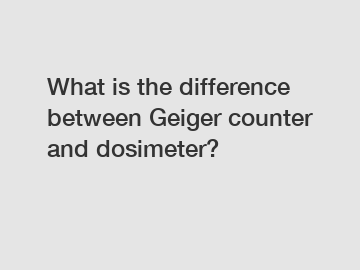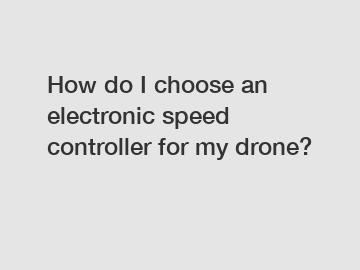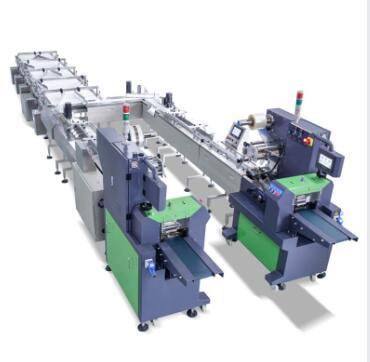What is the difference between Geiger counter and dosimeter?
Do you ever wonder what the difference is between a Geiger counter and a dosimeter? If you're curious about these radiation detection devices, you've come to the right place. In this article, we will explore the distinctions between the two and help you understand their unique functions.
What is a Geiger Counter?
Let's start with the Geiger counter. A Geiger counter is a portable handheld device used for detecting and measuring radiation levels in the environment. It works by detecting the ionizing radiation emitted by radioactive materials. This instrument is commonly used in nuclear power plants, laboratories, and even by professionals handling radioactive materials.

How does it work?
When radiation interacts with the Geiger-Muller tube inside the device, it ionizes the gas inside the tube, producing a small electrical pulse. This pulse is then amplified and counted by the device, providing a measurement of the radiation present in the area.
What is a Dosimeter?
Now, let's move on to the dosimeter. A dosimeter is a personal radiation monitoring device worn by individuals who work in environments where they may be exposed to radiation. Unlike a Geiger counter, a dosimeter measures the amount of radiation absorbed by the wearer over time, rather than just detecting its presence.
How does it work?
A dosimeter records the cumulative dose of radiation the wearer has been exposed to throughout the day. The data collected can then be analyzed to ensure the wearer has not exceeded safe exposure limits. Dosimeters are commonly used by workers in the nuclear industry, medical professionals, and even airline pilots.
Explore more:Ultimate Guide: Safeguard Your Machine! Expert Tips for Hardening Computer Security
Which Tyre Clamps Attachment Custom is the Best for a Secure Purchase?
What are the advantages of custom tyre clamps attachments?
Enhance Efficiency & Quality: Discover the Revolutionary Pellet Coater!
Which Features Make the Smart Screw Air Compressor Superior to Traditional Models?
Which Industries Can Benefit from CE Certified Coconut Press Machines?
What are the advantages of purchasing a new Exhaust Gas Steam Boiler?
Key Differences:
1. Geiger counters are used to detect radiation levels in the environment, while dosimeters measure radiation exposure over time.
2. Geiger counters provide real-time readings of radiation levels, while dosimeters record and store data for later analysis.
3. Geiger counters are used for monitoring radiation in specific locations, while dosimeters are worn by individuals for personal monitoring.
So, to sum it up, a Geiger counter is like a radiation detective, sniffing out radioactive materials in the environment, while a dosimeter is like a personal bodyguard, keeping track of your radiation exposure throughout the day.
Closing Thoughts:
Both the Geiger counter and dosimeter play important roles in ensuring the safety of individuals working in radiation-prone environments. Understanding the differences between the two devices is essential for choosing the right tool for your specific needs.
If you have any additional questions about Geiger counters, dosimeters, or other radiation detection devices, feel free to contact us. We are a leading supplier of radiation detection equipment and would be happy to assist you with any inquiries you may have.
Stay safe and informed when it comes to radiation detection, and remember to always prioritize your health and safety in any environment where radiation may be present.
For more master oscillator power amplifier, radiation protection solutions, radiation detection and measurement solutionsinformation, please contact us. We will provide professional answers.
Explore more:Which Chemical Jerry Can Blow Molding Machine Offers the Best Value for Purchase?
What are the advantages of plastic crusher machine?
What are 3 disadvantages of using ozone to treat water?
What was the first compressed air rifle?
What is the spinning process of a lathe?
How Diode Laser Technology Transforms Copper Cutting: Efficient & Precise Solutions
Which is the best CE standard liquid nitrogen storage tank in terms of durability and cost-effectiveness?










